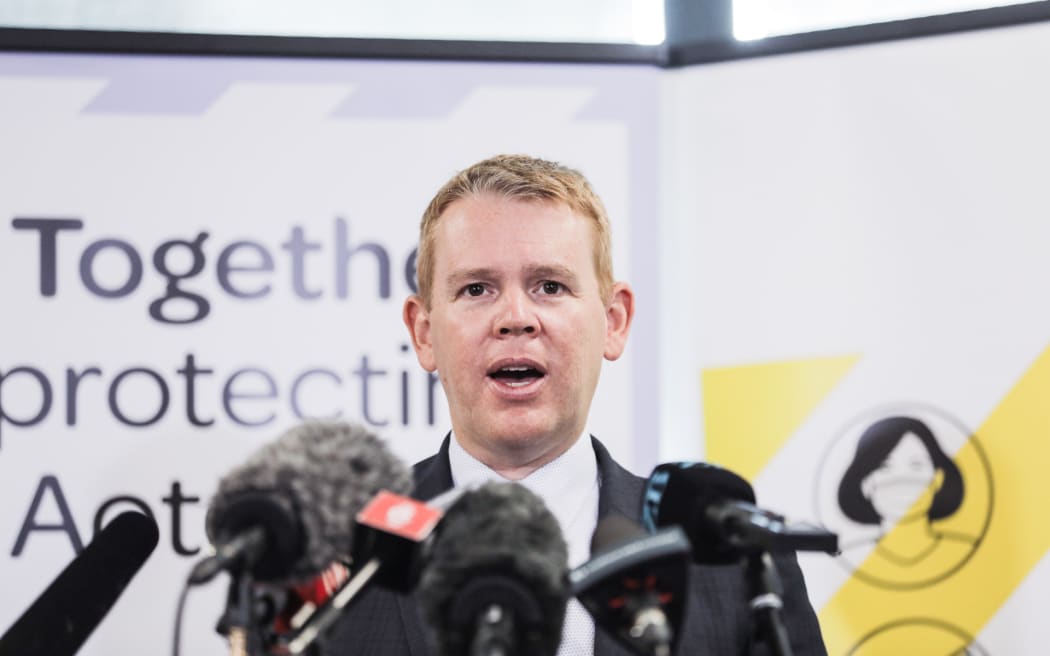 The government plans to introduce new pandemic legislation to handle future events, Chris Hipkins says. Photo: RNZ / Samuel Rillstone
The government plans to introduce new pandemic legislation to handle future events, Chris Hipkins says. Photo: RNZ / Samuel RillstoneThe government is winding down some of its Covid-19 powers, saying they’re no longer justified.
Vaccine mandates, managed isolation and lockdowns will all be scrapped, leaving only a handful of public health measures.
Also ending on Thursday is the requirement for travellers flying to New Zealand by air having to complete the online New Zealand Traveller Declaration.
However, the seven-day case isolation period and mask-wearing requirements for visitors in some healthcare settings will remain for the time being as cases and hospitalisations tick up.
“Today is a significant milestone,” the acting Minister for Covid-19 Response, Chris Hipkins, said in a statement.
“The government has been clear that the measures used to contain the spread of Covid-19 need to be proportionate to the risk of the virus, so it’s appropriate to wind down many of the extraordinary powers that are no longer needed.”
The government will also revoke the Epidemic Notice, which represented a move away from emergency arrangements to long-term management of the virus, Hipkins said.
The advent of other tools, such as widened availability of anti-virals, was instrumental in this decision, he said.
The Covid-19 Public Health Response Act was introduced in 2020 to provide an extraordinary set of legislative powers that enabled the government to respond to the pandemic.
It provided the primary legal framework for implementing the mandatory public health measures and was due to be repealed in May 2023 unless done sooner.
“The government’s plan before the end of the year is to remove the most restrictive powers from the Act that are no longer required for the response, while still ensuring we can practically manage the ongoing impact of Covid-19.”
He said that meant the ability to put in place case isolation periods and mask-wearing requirements and if necessary, requirements on travellers would be retained.
“But most other measures, including lockdowns, will be removed.
“Under the new plan, if other measures – beyond isolation periods, mask-wearing and traveller requirements – were needed we would need to pass new legislation to enable these.
“Keeping a basic legal framework in place provides sufficient time to consult on and design a replacement general pandemic piece of legislation that would set New Zealand in good stead for any future events, rather than having to start from scratch as we had to in 2020.
“It is critical that a legacy of this pandemic is a fit for purpose piece of pandemic legislation like we have for civil defence and natural disasters,” Hipkins said.
Customs Minister Meka Whaitiri said the New Zealand Traveller Declaration had been a vital tool in supporting the safe re-opening of our borders.
“The NZTD is an integral part of modernising Aotearoa’s border experience and the New Zealand Customs Service is working with border agencies to replace the paper arrival card with the online NZTD system by June 2023,” Meka Whaitiri said.
